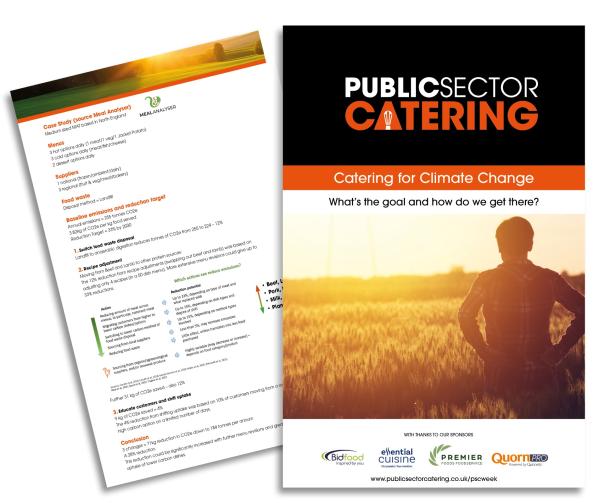
According to research the food industry contributes up to one third of global greenhouse gas emissions, which have a major impact on land use, pollution and biodiversity. Without action, we will exceed safe planetary limit by 2050.
The focus of Plant-Based Day is to show caterers how you can either replace meat or supplement it with cheaper, plant-based ingredients to not only produce healthy, tasty dishes but make a measurable dent in your catering operations carbon emissions.
Globally emissions from agriculture and food need to reduce by 67% by 2050 to keep within the 1.5 degrees of warming. The ‘Catering for Climate’ digital resource highlights several changes to help reach this target, including:
- Mindful ingredient sourcing: expand plant-based options, switch ruminant meat and go local
- Efficient energy practices: invest in energy efficient appliances and optimise cooking techniques
- Waste reduction strategies: implement portion control and recycling
- Water conservation measures: fix leaks and invest in water efficient equipment
- Community engagement: educate staff and engage with the local community
- Continuous improvement: Encourage kitchen staff to innovate and explore new sustainable practices
Professor Angela Tregear, for the University of Edinburgh Business School, said: “So many school caterers are already working towards this in various ways, but what could an emissions reduction target look like for school caterers and what are the sorts of changes that can help achieve it?”
Using the Meal Analyser tool she had helped to develop to measure carbon in school catering, 19 UK school catering services were monitored.
They were found on average to be generating 3.2kg carbon per 1kg of food served, which if extrapolated to all UK schools would mean emissions from meals coming to 943,520m tonnes CO2. Cutting that by a third would save the equivalent of a third of a million tonnes of CO2e.
More plant-based ingredients and less use of ruminant meat, such as replace beef with pork in a pasta Bolognese helped. The case study showed that simply swapping four ingredients would achieve a similar 12% reduction. Simply encouraging pupils to choose lower carbon dishes by labelling them as such on the menu helped save another 4% in CO2.